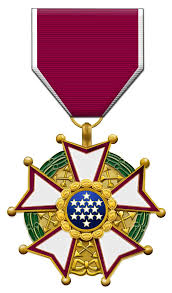记忆方法
将“merit”与“mer-i-t”中的“ei”部分联想为一个“ei”形状的奖杯,这个奖杯象征着你因为某种优点或成就而获得的“merit”。通过视觉联想,将奖杯和“ merit”这个词联系起来,有助于记忆这个词的含义,即“优点”、“价值”或“功绩”。
以上内容由AI生成, 仅供参考和借鉴
中文词源
merit 功绩,才能,优点
来自古法语merite,工资,奖励,神的赐予,来自拉丁语merere,挣得,赚取,应得,来自PIE*smer,分配,划分,部分,词源同polymer,emeritus.字面意思即赚取自己应得的部分,引申词义奖品,精神奖励,神的礼物,并抽象化为功绩,才能,优点等。
英语词源
- merit (n.)
- c. 1200, "spiritual credit" (for good works, etc.); c. 1300, "spiritual reward," from Old French merite "wages, pay, reward; thanks; merit, moral worth, that which assures divine pity," and directly from Latin meritum "a merit, service, kindness, benefit, favor; worth, value, importance," neuter of meritus, past participle of merere, meriri "to earn, deserve, acquire, gain," from PIE root *(s)mer- (2) "to allot, assign" (cognates: Greek meros "part, lot," moira "share, fate," moros "fate, destiny, doom," Hittite mark "to divide" a sacrifice).
Sense of "worthiness, excellence" is from early 14c.; from late 14c. as "condition or conduct that deserves either reward or punishment;" also "a reward, benefit." Related: Merits. Merit system attested from 1880. Merit-monger was in common use 16c.-17c. in a sense roughly of "do-gooder." - merit (v.)
- late 15c., "to be entitled to," from Middle French meriter (Modern French mériter), from merite (n.), or directly from Latin meritare "to earn, yield," frequentative of mereri "to earn (money);" also "to serve as a soldier" (see merit (n.)). Related: Merited; meriting.
权威例句
- 1. Surely such weighty matters merit a higher level of debate?
- 这样重大的事件谅必应进行更高级别的讨论吧?
- 2. For his dedication the Mayor awarded him a medal of merit.
- 为表彰他的奉献精神,市长授予他荣誉奖章。
- 3. "It's of no great literary merit," he said, almost apologetically.
- “它没多大的文学价值,”他近乎愧疚地说道。
- 4. Your feature has the merit of simply stating what has been achieved.
- 你这篇专题文章的可取之处是简明扼要地道出了取得的成就。
- 5. Everybody is selected on merit.
- 每个人都是凭个人才能入选的。
